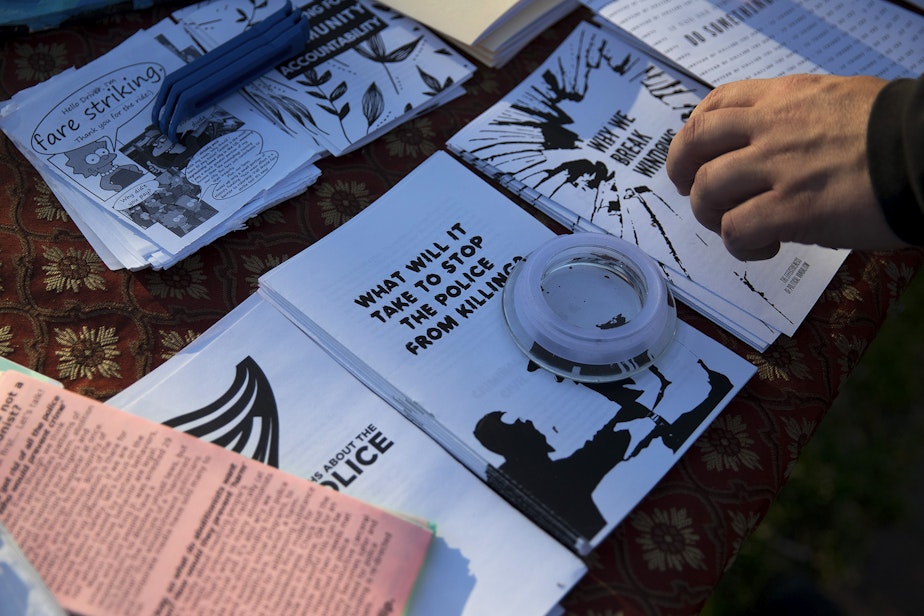'It took this to finally get justice': What was different, and not, in the George Floyd murder case

Many people across the country felt relief Tuesday as former Minneapolis police officer Derek Chauvin was found guilty on all three charges brought against him for the murder of George Floyd.
But many also felt conflicted about what the moment meant to them.
Poet Amanda Gorman — who captivated the country with her poem "The Hill We Climb" on the day of President Biden's inauguration — put it this way: "A reminder that victory would be George Floyd being alive. Every day Black Americans worry if they will be next is another day without justice."
Washington Governor Jay Inslee said much the same in his own statement following the verdict. He noted police accountability bills that have been approved by the state Legislature this session, including rules around police use of force. But, he added, "Our communities will not be at peace until everyone feels secure to do the most basic things."

For Christopher Sebastian Parker, a University of Washington political science professor, the verdict was a moment of ambivalence more than anything else.
And that's because of what it took to get to the moment when a white police officer could be convicted for the murder of a Black man.
Sponsored
"It took a man, a police officer, a white cop getting caught on tape, kneeling on a black man's neck for damn near 10 minutes for us to get justice," Parker says. "So, in some ways there's relief and, in another way, there's anger."
Anger because on the same afternoon that Chauvin was found guilty, a 16-year-old Black girl was killed by a white cop in Columbus, Ohio. There is also still the sentencing phase in Chauvin trial to think about.
"The struggle continues," he says. "We could very well be disappointed with how (the judge) rules when it comes to sentencing. ... But let me just say, the jury did the right thing. So, at least, we're off to a good start."




